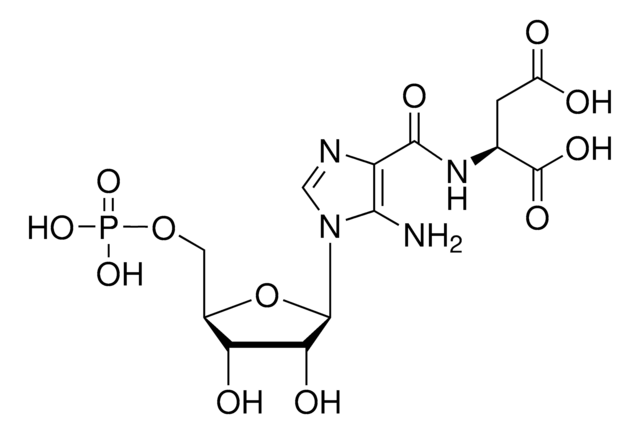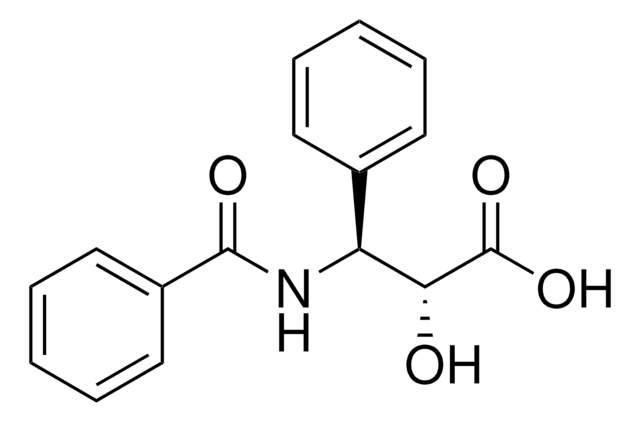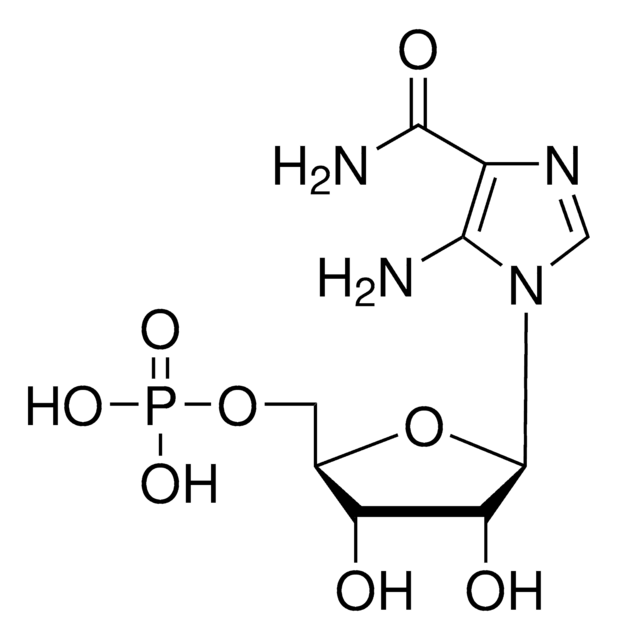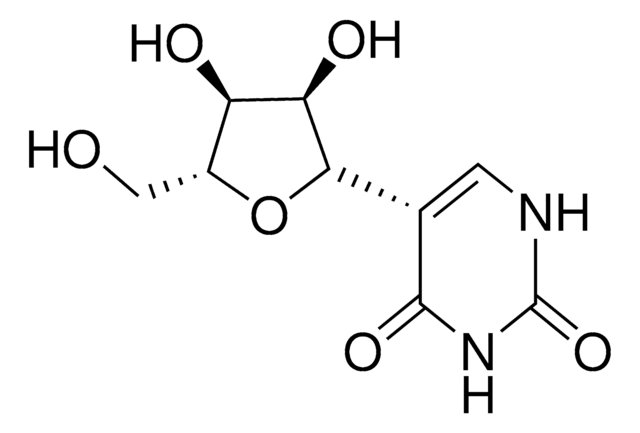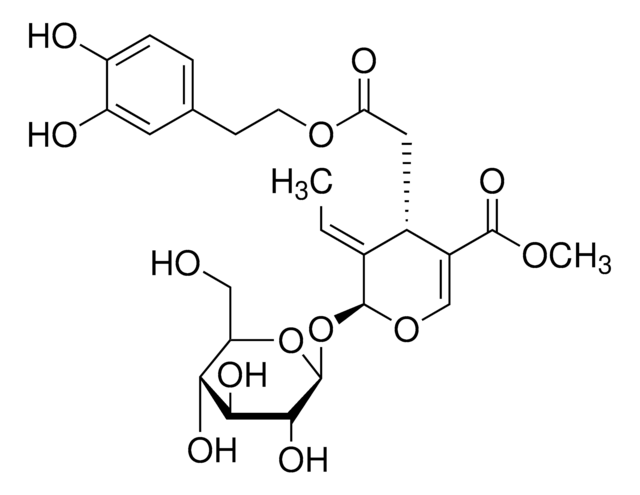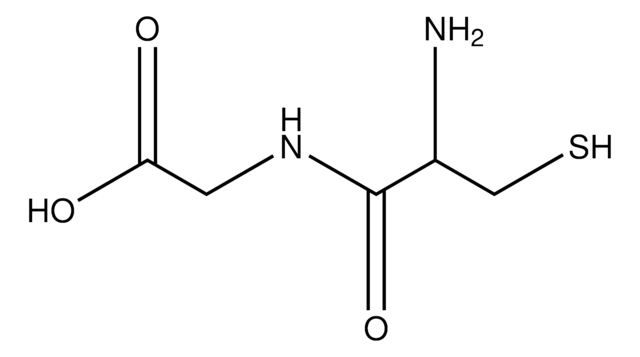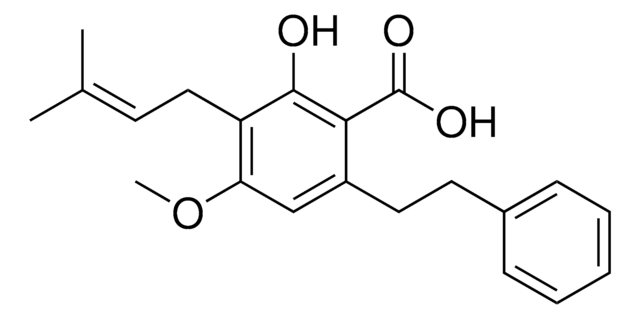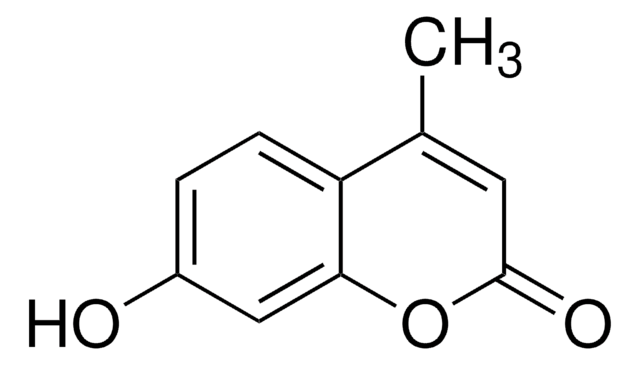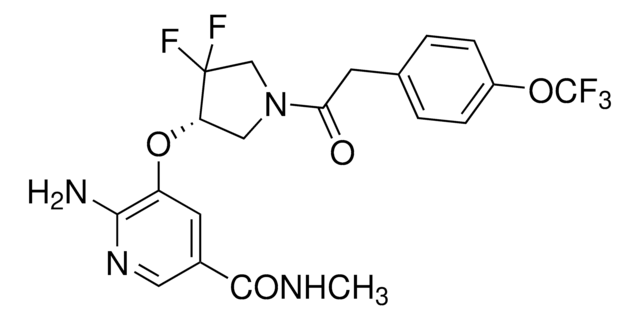SMB01381
SAICAriboside
≥95% (HPLC), from synthetic, solid
Synonym(s):
N-Succinyl-5-aminoimidazole-4-carboxamide Ribose
About This Item
Recommended Products
biological source
synthetic
Quality Level
Assay
≥95% (HPLC)
form
solid
color
white to beige
mp
130-135 °C
storage temp.
2-8°C
SMILES string
NC1=C(C(N[C@H](C(O)=O)CC(O)=O)=O)N=CN1[C@H]2[C@H](O)[C@H](O)[C@@H](CO)O2
InChI
1S/C13H18N4O9/c14-10-7(11(23)16-4(13(24)25)1-6(19)20)15-3-17(10)12-9(22)8(21)5(2-18)26-12/h3-5,8-9,12,18,21-22H,1-2,14H2,(H,16,23)(H,19,20)(H,24,25)/t4-,5+,8+,9+,12+/m0/s1
General description
Storage and Stability
related product
Storage Class Code
11 - Combustible Solids
WGK
WGK 3
Flash Point(F)
Not applicable
Flash Point(C)
Not applicable
Choose from one of the most recent versions:
Certificates of Analysis (COA)
Sorry, we don't have COAs for this product available online at this time.
If you need assistance, please contact Customer Support.
Already Own This Product?
Find documentation for the products that you have recently purchased in the Document Library.
Our team of scientists has experience in all areas of research including Life Science, Material Science, Chemical Synthesis, Chromatography, Analytical and many others.
Contact Technical Service